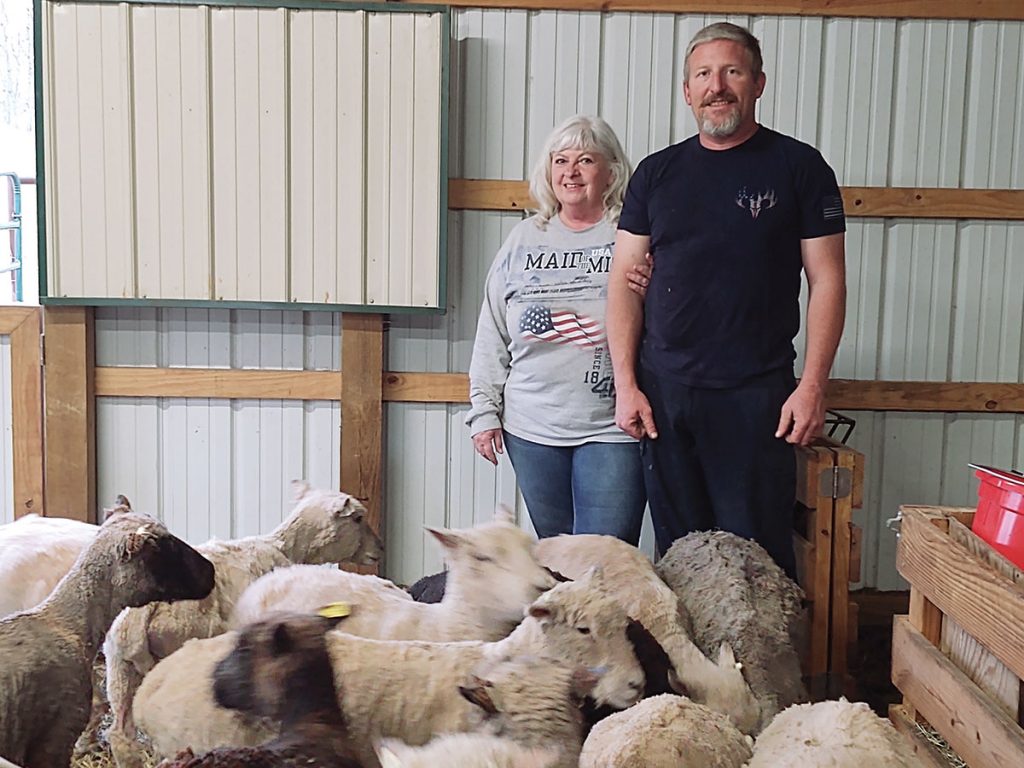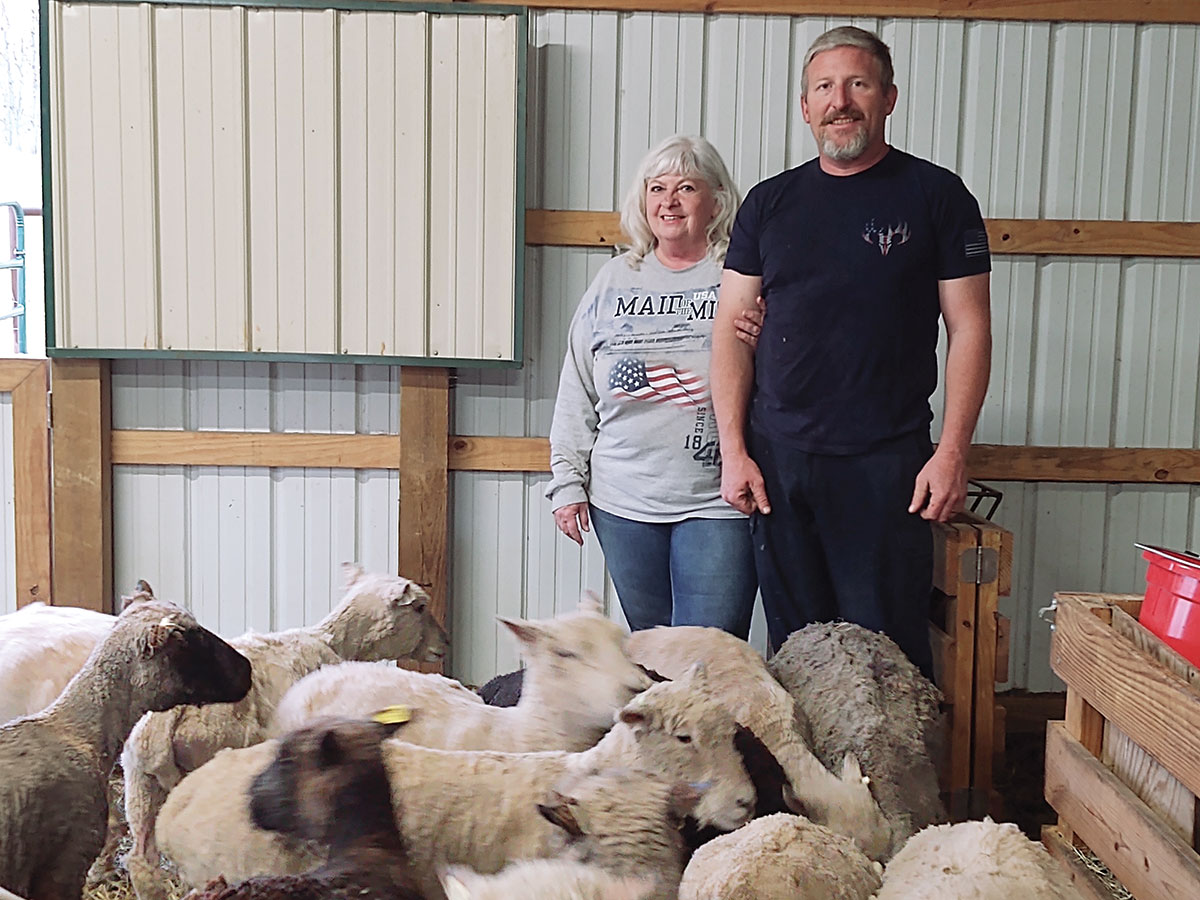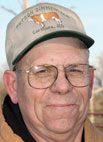
Brenda Tribble and her husband Darrel raise Babydoll Southdowns at their Rockin’ Ranch in Camden County, Mo.
When Brenda Tribble speaks of her Old English Babydoll Southdown sheep, she does so with a smile, as she calls them “the sheep that smile.”
She and her husband Darrel keep 42 Babydolls, including four rams, ewes, and wethers, on their Rockin’ T Ranch in rural Camden County, outside Macks Creek.
Babydoll Southdowns are a smaller breed of sheep, with ewes standing an average of 18 to 24 inches at the shoulder.
“They are popular with orchard and vineyard owners and for youth projects,” Brenda said. “They are easy to handle and a lot of women and hobby farmers enjoy raising them because they are so docile and smaller than many other forms of livestock.”
They may be smaller, but Babydoll Southdowns are like other breeds of sheep and require proper management.
“We had 32 lambs in our lambing season this spring,” Brenda added. “We delivered those in three weeks so we were really busy. One of our first years, we allowed the rams to be in with the ewes far too long and that gave us a two-and-a-half-month-long lambing season. Now we allow them to be together for just four to six weeks and that gives us a real good handle on how long our lambing season will be. Like all things in this business, you learn as you go along,” she laughed.
“Lambing season is so busy because we monitor our ewes around the clock. This year we had more ewes that needed assistance than in past years… There were lots of new experiences this year but all of our animals came out fine so that’s the best part.”
This year, Brenda also noted all of her lambs and most of her ewes are much less skittish than in the past. “They are so gentle and approachable. All but two of our ewes allow us to approach and pet them so I think that’s part of it, the lambs following their mothers’ lead.”
In recent years, Darrel has learned to shear their sheep and is also available for hire to assist other area shepherds.
While some in the sheep business, sell their wool to the craft and fiber market, the Tribbles do not. Beyond the crafters and those interested in the old time art of spinning, there is not much of a market for wool in the 21st century.
“It makes lambing easier once the sheep are sheared,” Brenda explained. “You can see those tummies and monitor the pregnancy better. It makes life easier on the ewes too, once the heat sets in. Having Darrel do our shearing is a real advantage. Getting on someone’s list to get your sheep done was really difficult sometimes in the past.”
In their early years, the Tribbles Babydoll Sheep were registered with the Robert Mock Registry, a sole proprietorship registry formed by the founder to ensure the Babydoll Southdown heritage lineage continued. After he died, his daughter sold the registry but Brenda and Darrel were thrilled to find it was purchased by another Ozarks sheep-producing family, Byron and Sandy Self and their 13-year-old Stephanie, a young but experienced shepherdess of Babydoll sheep. A couple of new registries have also been established more recently and the Tribbles are now dual registered with the original Mock Registry and the North American Babydoll Southdown Sheep Association Registry, NABSSAR.
The couple closely monitor flock health, and the implementation of a rotational grazing system helps control parasites.
“Rotating them through our fields is a great help,” Brenda explained. “We have four paddocks and one large open area of about 60 to 70 acres. A number of sheep producers only do hay and grain because of the parasites. Last year, because of the wet spring and the drier summer, they were a more serious problem than past years but that is the first time, we’ve experienced that. We alternate Prohibit and Panacur as our de-wormer.
“As with other breeds of sheep and goats, predators can be a problem. Darrel uses traps to keep the coyotes away but really dogs, especially other people’s dogs, are one of the biggest threats. I always warn our buyers to watch out for their neighbors’ dogs around their sheep and lambs.”
In addition to the production side, Brenda has sold sheep as companion animals, or pets.
“People literally like having a couple of them on their lawn to control the grass and weeds,” she said. “One of our latest clients bought some of our lambs to mingle amongst the guests at her new wedding venue. Now that’s pretty sweet, but like I said, they are the sheep that smiles.”







